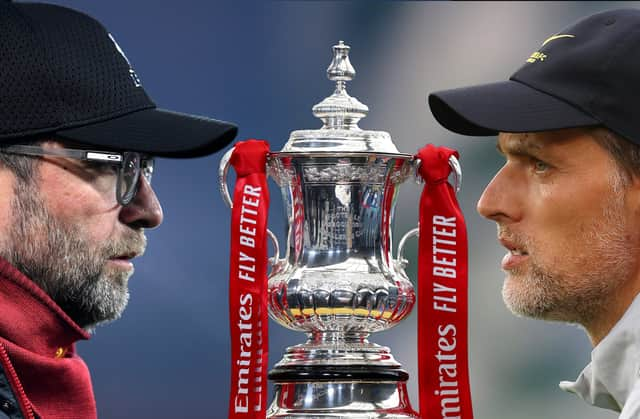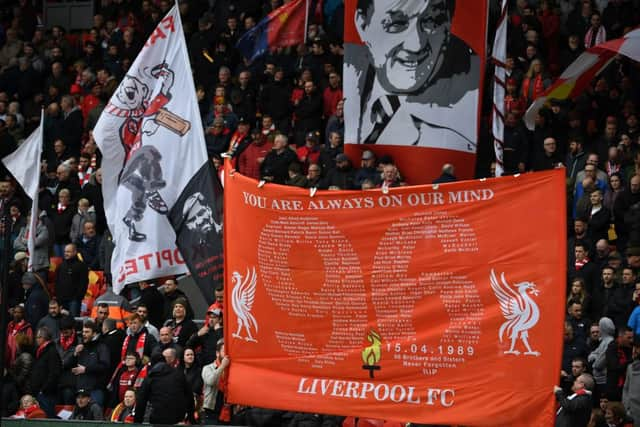What! Cup final outing costs half a week's pay


Is saving for the FA Cup final worthwhile?
Inflation-hit football fans are now having to work almost twice as long as previous generations to afford a day out at the FA Cup Final.


A typical supporter off to Wembley to cheer on their team would have spent the equivalent of 1.25 days’ take-home pay to watch Arsenal v Newcastle in 1952, the year the Queen came to the throne.
Advertisement
Hide AdAdvertisement
Hide AdBut this year the average Liverpool fan needs to work almost 2.5 days to be at Saturday’s showpiece against Chelsea, according to research conducted for cost-of-living champion Nous.co.
Counting the cost
The costs – which take in match tickets, train fare, food, drink, programme and scarf – added up to £2.66 out of an average weekly wage of £10 in 1952. This year the cost of attending will be £292, with the average weekly wage is £611.
That means the 1952 fan had to pay 26 per cent of their week’s wages, compared to 48 per cent for a supporter today.


Ticket prices alone have risen a whopping 750 percent from 15p for most fans in 1952 to £115 for a mid-range seat on Saturday. Return rail fares from the north to London have risen from around £1.80 70 years ago to £104.
Advertisement
Hide AdAdvertisement
Hide AdWhich prices have risen?
Food and drink have sky-rocketed too. The 1950s fan could pick up a portion of fish and chips on the way to the game for just 6p, but on Saturday a burger and fries in the Wembley concourse is likely to cost £9.90 – or a rise of 160 times.
And a few beers during the day 70 years ago would have cost 45p at 9p a pint, compared to £33 for five pints at Wembley on Saturday.


A programme and scarf from one of the sellers outside the ground cost 5p and 15p then, but will be more like £14 and £15 this week.
Experts say that £1 in 1952 is the equivalent to £30 today. Back then, inflation was running at over nine per cent, and we are expected to hit that figure - and more - before the end of the year.
Advertisement
Hide AdAdvertisement
Hide AdHard words
Nous.co CEO and founder Greg Marsh said: “Inflation and cost-of-living squeezes hit everyone. But not everyone or every sector is hit to the same extent, as different prices actually rise at different rates.
“As our study shows, football fans have been hit harder than most over the decades. It used to be known as the working man’s game, but now you need twice as much money in real terms to enjoy a day out at the Cup Final.
“It shows just how important it is for everyone to keep track of their finances and know exactly what the current cost-of-living crisis means and could mean for the money in their pockets.
"Each household is different, with different providers and types of spend rising at different rates, so we urge people to get smart on exactly how the cost-of-living crisis will impact them by using online tools such as our free dashboard at www.nous.co.”
Advertisement
Hide AdAdvertisement
Hide AdFor a story on how would Wembley survive on grassroots funding visit: